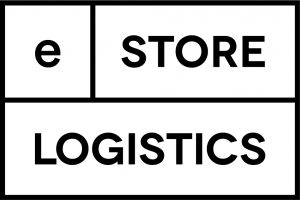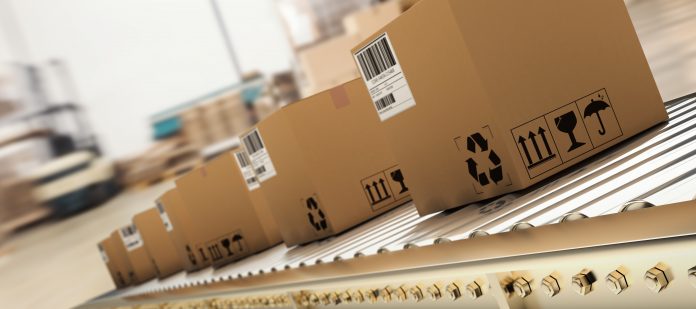As this month’s Black Friday sales approach, retailers need to have a clear plan to manage this peak period and ensure they are running at a level that keeps customers satisfied. Guaranteeing rapid delivery times is therefore critical to keeping customers onside as they snap up single-day deals.
By eStore Logistics founder and CEO Leigh Williams. 
Ecommerce has grown off the charts during Covid and more shoppers than ever will be going online for Black Friday and Cyber Monday. For example, this year, eStore Logistics customers sold 89% more orders in July 2020 compared to in July 2019, 92% more orders in August 2020 compared to in August 2019 and 75% more orders in September 2020 compared to in September 2019. However, we’re forecasting a 200% to 300% increase this Black Friday and festive season compared to 2019’s regular season volume.
Nationwide, consumers’ enthusiasm is high. Victoria’s economy has reopened, with Third Step restrictions implemented on 28 October allowing Melbournians to leave home without a reason and commerce to reopen. But before retailers ring the cash register, they need to plan for critical factors such as staffing, warehouse equipment, storage and warehouse capacity, and space utilisation.
Failing to plan?
For retailers in all categories, the key to success is balancing customer service with planning and forecasting. For instance, fulfillment operations are not always given the attention they need, but the power to offer faster, more efficient, and more cost-effective deliveries is a crucial step to building a strong customer base.
The same principles apply to bricks-and-mortar retailers with an ecommerce offering. They need to meet the requirement for shoppers’ demands, while ensuring service levels remain high and that there isn’t a backlog of orders.
Our experience in servicing more than 20 million orders per year for Australia’s top ecommerce and omnichannel retailers, such as Kogan.com, Temple & Webster, Patagonia, and Hairhouse, has shown that it’s safer to over-forecast than under-forecast.
Careful preparation will enable retailers to both cope during peak periods and utilise holiday period sales by analysing customer buying behaviour, working out deals and price points, and boosting digital marketing.
In addition to following the traditional route of investing capital in their own warehousing and logistics, retailers can get Black Friday ready by following a few simple steps:
- Review sales projections and share them with your third-party logistics (3PL) provider if you are outsourcing your warehouse operations. This avoids over or understocking your warehouse.
- Use data to forecast for this peak period. Combine historical sales order data with forecast demand to estimate your daily sales order volume for Black Friday, the Christmas peak, and the Boxing Day and New Year sales.
- Using your business forecast, calculate the additional staff required to fulfill inbound and outbound handling requirements. From a budget perspective, underpin these calculations by benchmarked work rates for known work profiles.
- To meet increasing customer expectations, ensure there is enough equipment on hand to meet the peak volume days. For online retail warehouses this ranges from traditional tools such as radio frequency (RF scanners), packing benches, forklifts, pallets, pallet jacks, and pick trolleys, to innovations such as automation and robotics.
- Retailers need to anticipate needing extra pallet/shelf/bin storage locations to hold additional stock. To manage inbound handling, start with the volume and profile of supplier shipments and determine the number of full container loads (FCLs), pallet and carton deliveries expected. Factor in the number of stock-keeping units (SKUs) and total units per inbound supplier shipment, alongside any special rework requirements.
While ecommerce has increased convenience and choice, retailers must look beyond that to maintain customer care and promote positive interactions such as referrals and word-of-mouth advertising. As the retail sector emerges from tough economic times, success for businesses is contingent on customer satisfaction, goodwill and loyalty.
eStore Logistics operates four fulfilment centres across Australia which feature AI powered stock picking robots that cost effectively support a 4pm cut off for same day fulfillment and same-day-delivery.
About Leigh Williams
Leigh Williams is the founder and Managing Director of eStore Logistics, Australia’s largest e-commerce focused fulfilment provider. Leigh founded eStore in 2008, before which he completed double degrees in Business and Information Systems then worked as a consultant with Accenture and IBM. Tapping into his IT background, Leigh developed a world-class, technology-focused 3PL specialised in servicing online retail.
About eStore Logistics
eStore Logistics is Australia’s largest ecommerce-focused fulfilment provider, built to service complex online retail order fulfilment profiles and volumes. It uses state-of-the-art technology, automation and logistics capabilities to provide a world-class warehousing and fulfilment solution for ecommerce and omni-channel retailers. 
The company has five sites across Australia and each year fulfils more than 20 million orders for Australia’s top ecommerce and omnichannel retailers, including Kogan.com, Temple & Webster, Patagonia and Hairhouse. eStore Logistics recently unveiled a robotics automation solution that will support a three-hour delivery service for customers.





